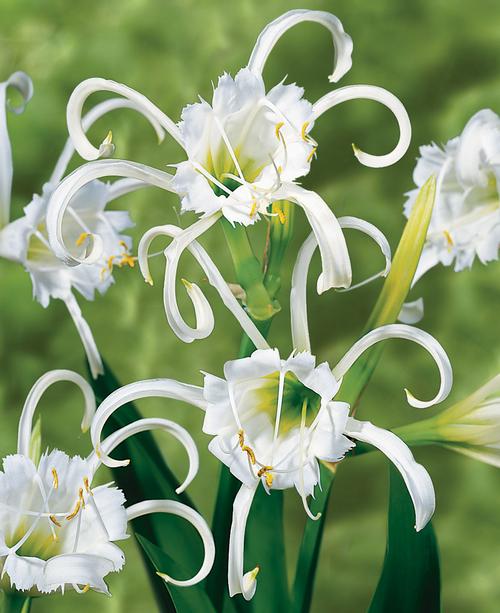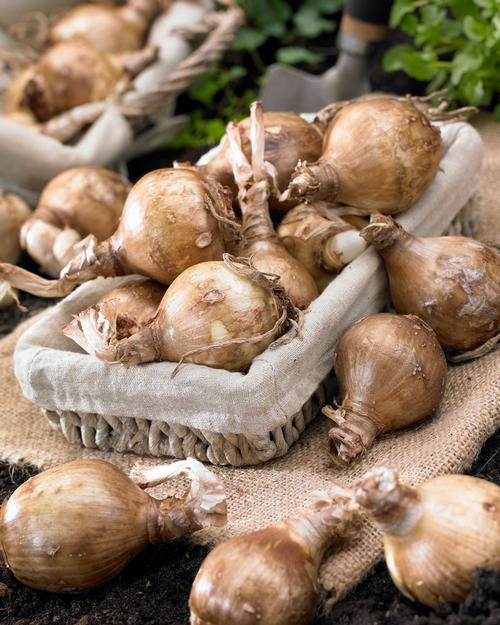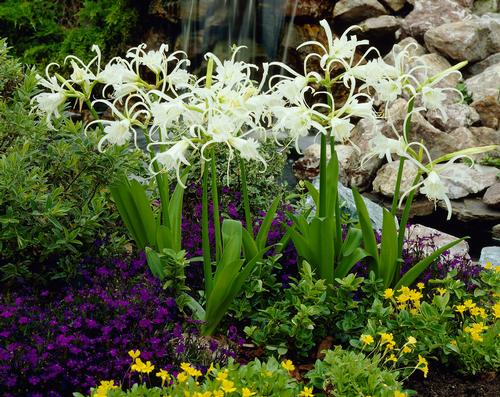Your Guide to Planning, Planting, and Growing Hymenocallis
These fragrant, exotic-looking flowers are relatives of the amaryllis. The bulbs are winter hardy perennials in zones 8-10. In cooler areas, hymenocallis may be treated as an annual or the bulbs may be brought indoors for the winter. Hymenocallis is known by many different names, which include Ismene, spider lily, Peruvian daffodil and summer daffodil.
What to Know About Hymenocallis
The flowers of hymenocallis resemble daffodils, with a central cup surrounded by petals that are typically much narrower and longer than those of a daffodil. The color of the flowers is usually white, though some are cream or yellow. The blossoms are intensely fragrant, especially after dark.
Hymenocallis have long, strappy leaves, similar to those of an amaryllis. The foliage typically emerges first, followed by the flower stalk with a cluster of 3 to 5 buds. Overall height including the flowers is about 2’ tall.

How to Plant Hymenocallis
In areas where the bulbs are hardy (zones 8-10), they may be planted directly into the garden. Choose a sunny or mostly sunny spot that provides some shelter from wind. Most importantly, make sure the soil is very well drained. Hymenocallis need moisture in the spring, but the soil should be quite dry during summer, fall and winter.
In colder areas, hymenocallis are usually grown in pots. This makes it easier to provide the well-drained growing conditions they need. You can also simply bring the pots indoors for the winter. Choose a container that will provide ample root space. Like amaryllis, the bulbs produce lots of fleshy roots that need plenty of room to expand. Plant 1 bulb per 8" diameter pot or 3 bulbs in a 15" diameter pot.
When planting, the base of the bulb's neck should be even with the soil surface. Water sparingly until the bulbs sprout.

How to Care for Hymenocallis
Once the bulbs have sprouted and are in active growth, water them as often as needed to keep the soil evenly moist. If you live in a rainy climate, make sure the soil does not become water-logged. Fertilize monthly. After the flowers have faded, you may either discard the bulbs or save them for next year.
If you want to save the bulbs, remove the flower stalk after the flowers have faded. Allow the leaves to continue growing and fertilize monthly. Stop watering when the leaves begin to yellow. If the bulbs are in pots, move them to a place where the soil will stay dry.
In zones 3-7 the bulbs need to be brought indoors before the first frost. Put them in a cool place (55-60°F) for the winter and keep the soil dry. When spring comes, check to see if the bulbs are root-bound. If so, transplant to a larger pot. Move the pot outdoors after all danger of frost.
Interested in growing hymenocallis? We have bulbs available for spring planting. Shop HERE.


